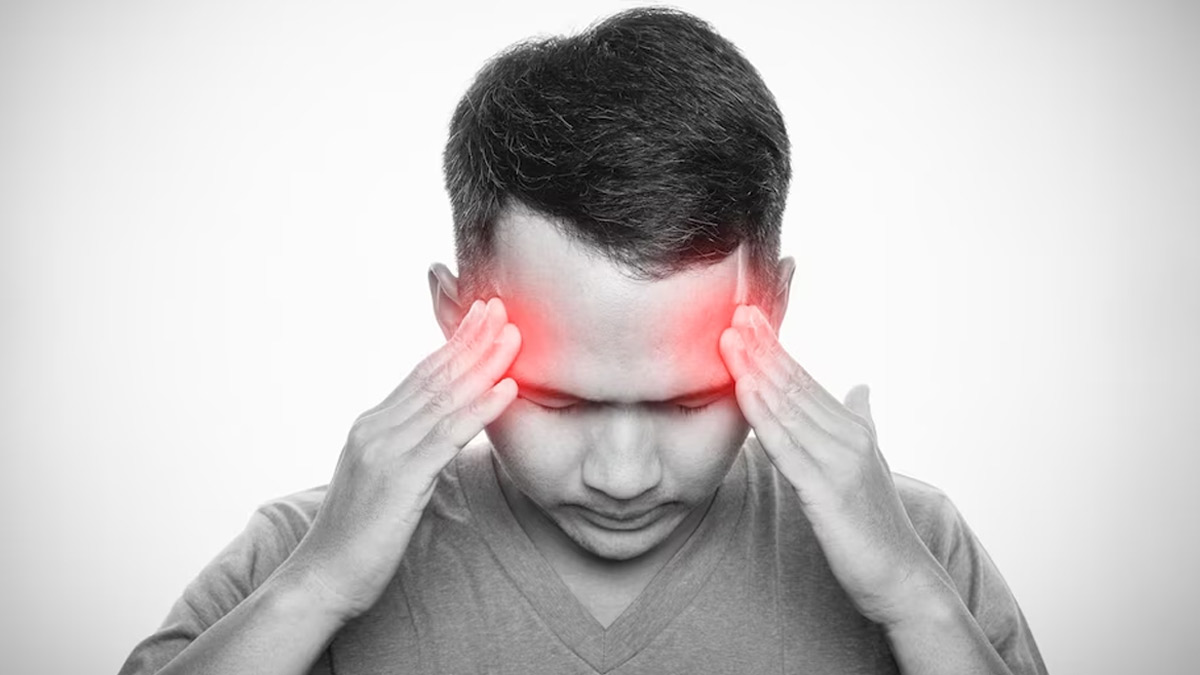
Coughing is a common bodily reflex that serves as a defence mechanism against foreign particles and irritants in the respiratory tract. But have you ever experienced a headache or a throbbing sensation in your head while you cough? This situation can be discomforting and concerning, prompting the need for a deeper understanding of the underlying issue. To know more about it, we spoke to Dr Ravi Shankerji Kesari, General Physician, Apollo Spectra Hospital, Bengaluru.
Table of Content:-
Why Do You Cough?
Before looking into the reasons behind the headache associated with coughing, it is essential to comprehend the complex physiology of coughing.
According to Dr Kesari, "A cough is a coordinated response involving multiple bodily systems, primarily the respiratory and muscular systems." He stated that when irritants or mucus stimulate the nerve endings in the respiratory passages, signals are sent to the brainstem, triggering a sequence of muscular contractions. "These contractions push air from the lungs at a high velocity to expel the irritant, thereby clearing the airways," he explained.

Also Read: Do You Have A Post-Infectious Cough? Here's How You Can Treat It At Home
Reasons For Headaches When You Cough
Here are the factors contributing to cough-induced headaches.
Intracranial Pressure and Cough-Related Headaches
"One of the primary culprits behind the headache experienced during coughing is the phenomenon of increased intracranial pressure," said the doctor. Intracranial pressure is the pressure within the cranial cavity, which is the space inside the skull that houses the brain, cerebrospinal fluid, and blood vessels.
"Coughing involves forceful exhalation, which temporarily elevates the pressure within the cranial cavity. This elevation in pressure can impact the sensitive structures within the brain, leading to a headache. The pain is often described as a throbbing or pulsating sensation that intensifies during coughing episodes," explained Dr Kesari.
The Role of Sinuses

"The nasal passages and the sinuses are two air-filled chambers in the skull. These structures also play a crucial role in regulating air temperature and humidity and enhancing the resonance of the voice," suggested Dr Kesari.
"However, health conditions, such as sinusitis, where the sinuses become inflamed and congested, can exacerbate the headache associated with coughing. When a person coughs, the forceful expulsion of air can cause fluctuations in sinus pressure, intensifying the discomfort in the head," he highlighted.
Also Read: Sinus Congestion vs Head Congestion: How To Differentiate Between The Two
Muscular Tension and Headaches
"Another factor contributing to cough-induced headaches is the muscular tension that accompanies forceful coughing," mentioned Dr Kesari. He said that the muscles of the head, neck, and upper body are at work during a cough to generate the necessary force for expulsion. "This muscular effort can lead to tension and strain in these regions, resulting in a headache. Prolonged or severe bouts of coughing can exacerbate this tension, intensifying the pain," he added.
Dehydration and Sensation of Pain

"Dehydration, a state in which the body lacks sufficient fluid to function optimally, can also contribute to the sensation of pain during coughing," said Dr Kesari. He explained that inadequate hydration can lead to decreased blood volume and blood flow to the brain. This reduced blood flow may heighten the sensitivity of pain receptors, amplifying the headache during coughing episodes.
Conclusion
The sensation of a headache during coughing episodes can be attributed to a combination of factors, including increased intracranial pressure, sinus conditions, muscular tension, and dehydration. Understanding the complex interplay of these factors sheds light on why some individuals experience this discomfort while coughing. It is crucial to remember that occasional instances of cough-related headaches are generally harmless. However, if the pain gets severe, frequent, or is accompanied by concerning symptoms, seeking medical attention is advisable to rule out underlying health issues.
[Disclaimer: This article is for informational purposes only. Consult your healthcare provider to get a thorough diagnosis and treatment as per your health needs.]
Image Credits: freepik
Also watch this video
How we keep this article up to date:
We work with experts and keep a close eye on the latest in health and wellness. Whenever there is a new research or helpful information, we update our articles with accurate and useful advice.
Current Version